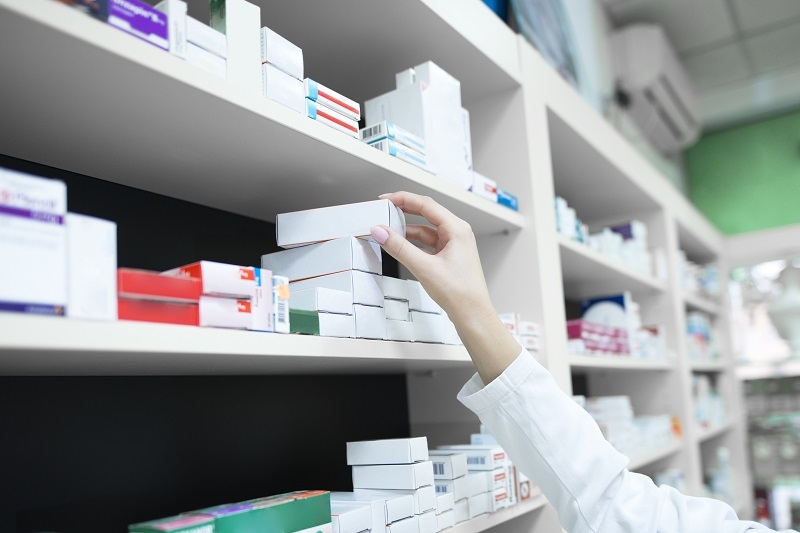Popular pharma products withdrawn by multinationals
 |
| Popular pharma products withdrawn by multinationals, illustration photo |
According to the Drug Administration of Vietnam (DAV) under the Ministry of Health, as many as 20 pharmaceuticals of multinational corporations (MNCs) have requested and been granted revocation of marketing authorisation from registration units.
Many pharma companies often request a withdrawal in order to rename or repackage particular products, although it is not known what percentage of companies do so for other reasons.
In the DAV’s Decision No.597/QD-QLD dated November 27 on the withdrawal, Lactacyd FH manufactured and registered by Sanofi-Synthelabo Vietnam is among the names.
A representative of Sanofi Vietnam said that in the past, the Lactacyd FH OTC medicine was produced at the Sanofi-Synthelabo plant in Ho Chi Minh City’s Thu Duc district, registered under the name of Sanofi-Synthelabo Vietnam and approved by the DAV in 2017.
“In an effort to bring the product to more Vietnamese consumers, we moved from the Lactacyd FH OTC medicine to the Lactacyd FH Cosmetics, and moved production of the product to a plant in Saigon High-Tech Park, as well as registered Lactacyd FH Cosmetics under Sanofi Vietnam, which was approved by the municipal Health Department in December 2017,” the representative explained.
“With this transformation, we submitted a voluntary marketing authorisation withdrawal of the Lactacyd FH OTC medicine. We reaffirm that this transformation is for the sole purpose of reaching more Vietnamese consumers, and it does not have any relation to the quality of the product,” he added.
The withdrawal list also includes Alvostat, manufactured by Polish Adamed Pharma; HIBERIX, registered by GlaxoSmithKline; and Climen, which is manufactured by Delpharm Lille SAS. Some pharmaceuticals manufactured by Merck Sharp & Dohme Ltd. like Singulair and Januvia are also listed.
When contacted by VIR, Magdalena Krakowiak, head of Public Affairs & CSR for Adamed Pharma in Vietnam, would only confirm that “Alvostat, although manufactured by Adamed, is a product of our client Alvogen.”
The decision stated that drugs produced locally and those imported into Vietnam before the effective date of the decision are allowed to be circulated until the expiry date. The registering units and manufacturers have responsibility for quality and safety and efficiency of the pharmaceuticals during the circulation.
Although the reasons for revocation are voluntary, several of the listed drugs are commonly used by families up and down the country.
Alvostat, Climen, Singulair, and Januvia are prescription drugs, while HIBERIX is a vaccine against hib infections which can cause serious illnesses, particularly in young children. In Vietnam the vaccination is recommended for all children under the age of five years old, with it usually administered only a few months after birth.
In Vietnam, branded drugs are costly because MNCs spend billions of US dollars researching and developing them. Thus, patents offer them exclusive rights to produce and set prices for drugs, treatments, and tests that they develop. Brand-name pharmaceuticals go to the hospital system, or the ethical drugs channel (ETC), which is the most profitable segment.
At present, ETC is the main distribution channel in the local pharma market, accounting for around 70 per cent, while the remainder of the market comprises over-the-counter, or non-description, drugs. Foreign players hold the majority of the ETC market due to ownership of brand-name drugs, which operate in a monopolistic manner and sell at high prices.
According to the DAV’s statistics, such drugs make up an average of 26 per cent of total health insurance spending. The rate is even 47 per cent at central hospitals, and 26 per cent at provincial ones.
Despite the DAV’s strict requirements, MNCs like Novartis, AstraZeneca, Merck Sharp & Dohme, and Pfizer have been rushing to complete all necessary procedures to get the most sought-after GMP recognition for their manufacturing sites in a move to gain advantage in the tender of branded drugs.
In the DAV’s Dispatch No.16807/QLD-CL dated November 12, governing the list of foreign-invested manufacturing sites seeking the GMP recognition, names like Novartis, GSK, DKSH Singapore Pte. Ltd., Hoffmann-La Roche Ltd, and Merck Sharp & Dohme are being asked to make further clarifications and submit supplementation documents for further consideration.
What the stars mean:
★ Poor ★ ★ Promising ★★★ Good ★★★★ Very good ★★★★★ Exceptional
Related Contents
Latest News
More News
- Foreign leaders extend congratulations to Party General Secretary To Lam (January 25, 2026 | 10:01)
- 14th National Party Congress wraps up with success (January 25, 2026 | 09:49)
- Congratulations from VFF Central Committee's int’l partners to 14th National Party Congress (January 25, 2026 | 09:46)
- 14th Party Central Committee unanimously elects To Lam as General Secretary (January 23, 2026 | 16:22)
- Worldwide congratulations underscore confidence in Vietnam’s 14th Party Congress (January 23, 2026 | 09:02)
- Political parties, organisations, int’l friends send congratulations to 14th National Party Congress (January 22, 2026 | 09:33)
- Press release on second working day of 14th National Party Congress (January 22, 2026 | 09:19)
- 14th National Party Congress: Japanese media highlight Vietnam’s growth targets (January 21, 2026 | 09:46)
- 14th National Party Congress: Driving force for Vietnam to continue renewal, innovation, breakthroughs (January 21, 2026 | 09:42)
- Vietnam remains spiritual support for progressive forces: Colombian party leader (January 21, 2026 | 08:00)

 Tag:
Tag:




















 Mobile Version
Mobile Version